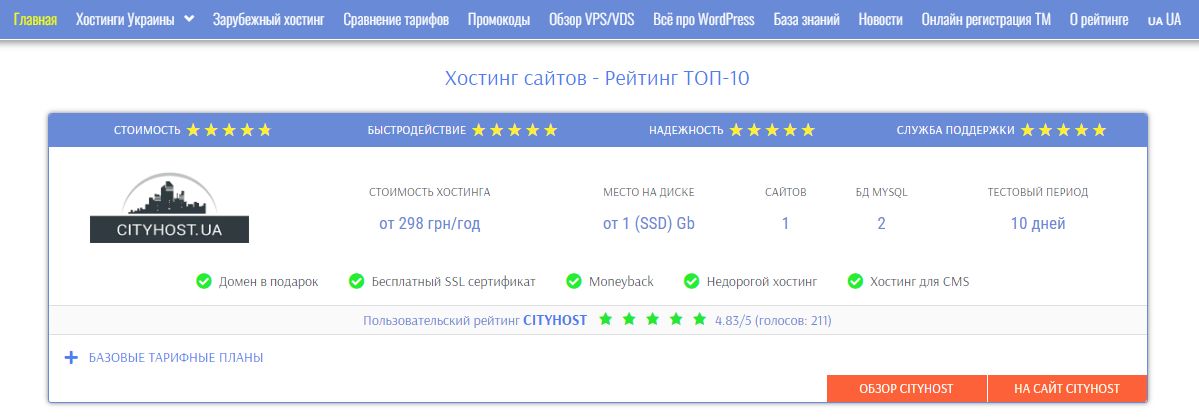What does an entrepreneur need in order to get his own website on the Internet? First you need to develop a site design, decide on the engine (CMS) on which the site will work, unless of course it will consist of only html pages.
Next, you need to select content for the site, preferably unique, then come up with a domain name and register it. It remains only to choose the “place of residence” of our site, that is, to find a suitable hosting for it.
What does the concept of hosting mean? This is part of the disk space provided by the hosting company for the physical placement of information about the site on its server, which is constantly online. The choice of hosting must be approached very responsibly, since the normal functioning and indexing of the site depends on the parameters of the server and its smooth operation.
Now on the Internet you can find a huge number of companies that offer hosting. It must be remembered that their servers are completely different. Let’s see what exactly they are:
- Free hosting. Its main advantage is that you do not have to pay for it. But such hosting has quite a few drawbacks, such as unstable work, and functional limitations, almost no responsibility, etc. Such hosting is only suitable for owners of small home pages or blogs.
- A data center service called Collocation. It consists in renting not only hosting, but also the premises where the server is installed. Yes, you still get constant support from specialists, but the fee for using it is quite high.
- Dedicated server. This is when the user fully rents the server and manages the entire volume of its disk. This service is very convenient, there are no neighbors in the form of other people’s sites or unnecessary information, there are no problems with access and traffic restrictions. But such a service is also not cheap. Such a pleasure can be afforded by the owners of portals or serious resources.
- Virtual hosting. This is the lease of a certain amount of disk space on the server of the virtual hosting provider. A very convenient and inexpensive service, however, not many companies can boast of reliable operation, and also guarantee 100% security of your site. Many users have access to the server, and one of them can mess something up.
- Vds hosting (Virtual Dedicated Server) – referred to as a virtual dedicated server. The service allows the user, in addition to disk space, to rent part of the processor time and server memory. Recommended for large sites or portals.
In order to accurately determine the hosting, the portal will be useful to you – https://hosting-top10.com/. The main direction is the rating of Ukrainian hostings. Each provider has its own page, which contains a detailed overview of the provider, with hosting and VPS tariff plans, prices, uptime values for certain periods, client ratings and reviews.
If you have a project abroad, then we recommend that you familiarize yourself with foreign hosting https://hosting-top10.com/foreign/. There are mainly providers that have Russian-language technical support, but there are also large market players with English-language support. This rating is for those who plan to host their sites outside of Ukraine, on foreign servers (for various reasons – for security purposes, to be physically closer to their client (less ping, better for search ranking, etc.)
Benefits of VDS
Recently, vds hosting is gaining more and more popularity. Let’s see why this happens and what the vds server is. Virtualization technology allows you to divide a powerful physical server into a certain number of virtual ones, and they, in turn, distribute among themselves all the resource capabilities of the main server. Therefore, VDS has all the features that a physical server has, and the cost of renting it is significantly reduced.
What are the benefits for users of VDS?
- Unlimited traffic. It’s very nice and convenient when you don’t have to track the volume of your traffic so that you don’t have to pay extra for exceeding it, for example, in the event of a DDoS attack.
- Backup – or as it is also called backup. The service allows you to backup data located on the server after a certain time, for example, every day.
- Safety. An isolated virtual server has an independent file system, a guaranteed amount of resources and its own IP. Since VDS is equipped with a reliable DDoS protection system, no one else except you will have access to it.
Expert in legal marketing. Head of marketing agency MAVR.
Business degree “Master of Business Administration” (MBA).

